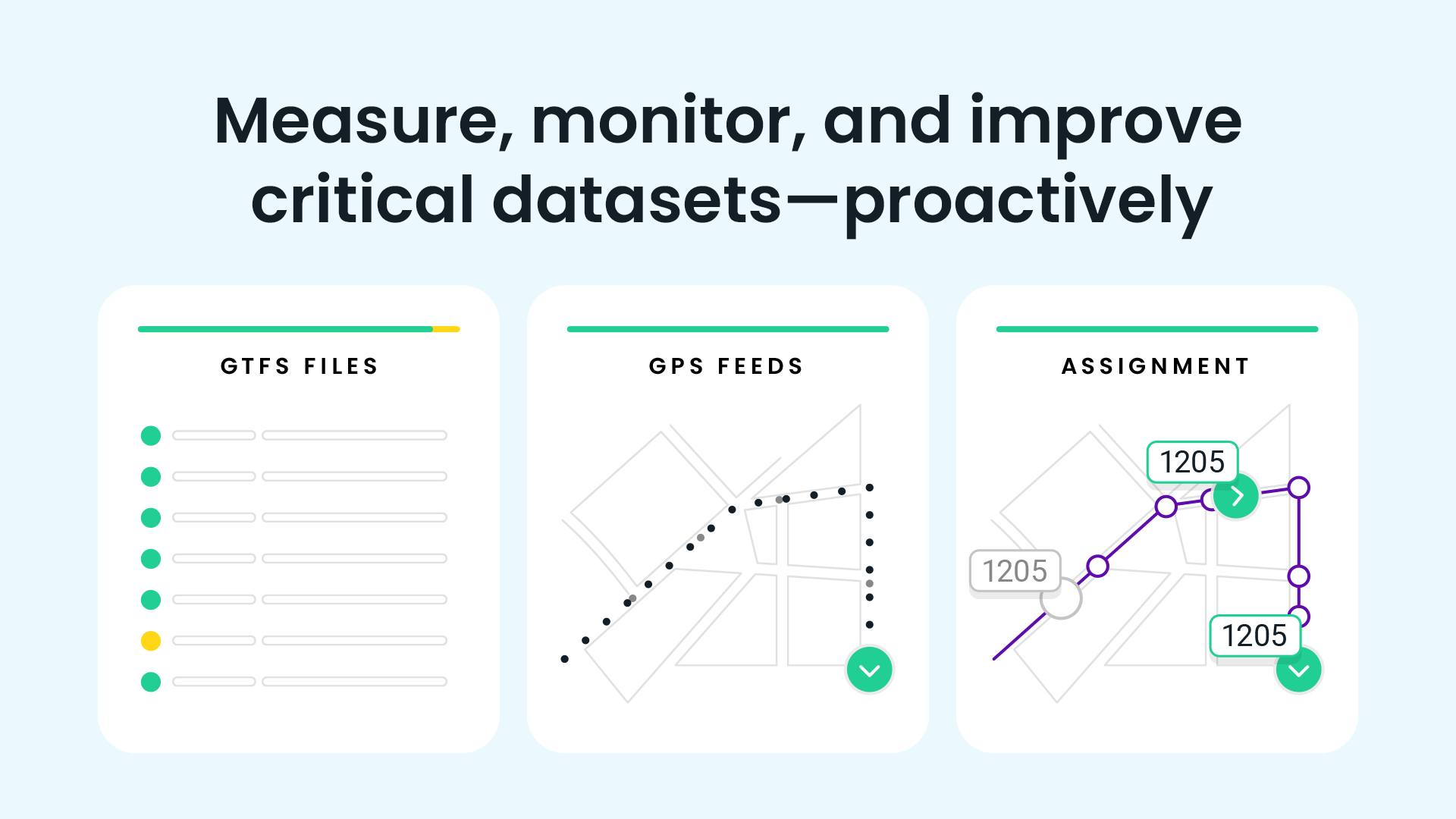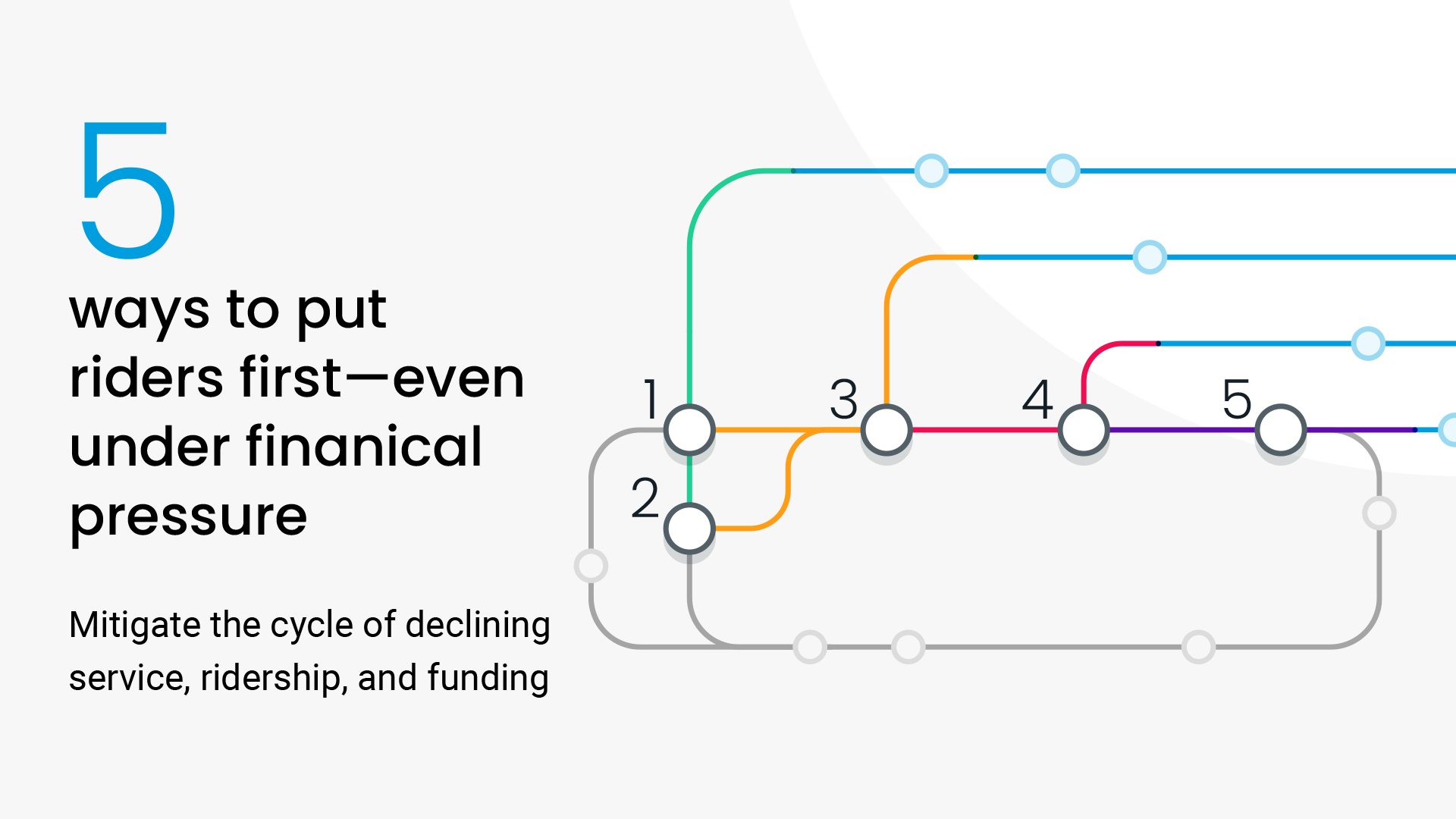
September 22, 2021
WMATA Improves On-Time Performance by 6.2% Systemwide with Swiftly's Run-Times

September 22, 2021
WMATA Improves On-Time Performance by 6.2% Systemwide with Swiftly's Run-Times
September 22, 2021
WMATA Improves On-Time Performance by 6.2% Systemwide with Swiftly's Run-Times
Executive summary
Swiftly’s Run-Times helped the Washington Metropolitan Area Transit Authority (Metro) easily create new, more accurate Metrobus schedules. The application was used by Metro’s bus scheduling team to adjust schedules on 34 routes in a single service change, increasing on-time performance (OTP) on those routes by 7.2% and boosting OTP by 6.2% systemwide.
By the numbers
- Swiftly’s Run-Times datasets and suggestions informed changes on 34 separate routes. On average, these routes saw a 7.2% increase in OTP, compared to a slight decline of 0.9% in OTP for routes without run-time changes when comparing timepoint data for the same dates.
- The changes made from Swiftly’s Run-Times were so strong, they brought up OTP for the entire Metrobus system. Systemwide, OTP for timepoints increased from 71.2% to 76.5%, a 5.3% increase. And for all stops, OTP increased from 67.0% to 73.2%, a 6.2% increase.
- MetroHero, an independent app that monitors the public transit system in the National Capital Region, also reflected a 6% improvement in OTP during the same time period for all stops.
Early arrivals had more than doubled during Covid
Washington Metropolitan Area Transit Authority (Metro) uses data to periodically adjust run-times on routes that are frequently running too early or late, typically making these changes yearly based on data that spans six months. However, due to the Covid-19 pandemic the DC region saw a significant decrease in traffic congestion that created additional scheduling challenges. Metro found that early arrivals more than doubled from pre-pandemic levels. At the same time, schedule periods were shorter and involved fewer trips in 2020 and early 2021 during the pandemic, giving the team less data to work with overall. With a smaller sample size and reduced operating schedule due to Covid, the data discard rate was higher. This made it more difficult to aggregate data for a single schedule period and identify the run times needed. In addition, the application needed to ensure that Metro’s schedule change was based on historical data and improve OTP, regardless of how Covid might have altered operations. Delivering on these objectives also required a cost-effective solution that could be integrated with existing tools.
Swiftly's Run-Times allowed Metro to find opportunities for big on-time performance gains
Swiftly’s Run-Times looked at a dataset that spanned multiple schedule periods during the pandemic to help create a schedule that factored in the continued impacts of Covid. The GTFS-RT feed that comes off the buses provided a larger sample size with more data coming in and less data being discarded. Metro used the Run-Times module to identify routes with the most earlies and with run-time distributions that indicated opportunities for big OTP gains if they were adjusted. Staff then leveraged the Suggested Run-Times tool to identify data-driven travel times to feed into scheduling.
Metro saw a 6.2% increase in on-time performance systemwide
Swiftly’s Run-Times datasets and suggestions were used to inform changes on 34 separate routes, and the numbers speak for themselves. On average, these routes saw a 7.2% increase in OTP, compared to a slight decline of 0.9% in OTP for routes without run-time changes, when comparing timepoint data for the same dates.
The changes made from Swiftly’s Run-Times were so strong, they brought up OTP for the entire system. Systemwide, OTP for timepoints increased from 71.2% to 76.5%, a 5.3% increase. And for all stops, OTP increased from 67.0% to 73.2%, a 6.2% increase. That increase was reflected by MetroHero as well, which reported a 6% improvement in OTP during the same time period for all stops.
Routes that used Swiftly Run-Times for schedule adjustments had a significantly larger percentage of improvement, as evidenced by route-level data.
Swiftly’s analysis allowed Metro to quickly look at multiple sets of routes at one time rather than individually and select running times that didn’t have to correspond with schedule periods. The data may also be downloaded into .csv, reducing the time needed to organize the data.
As a result Swiftly’s Run-Times created a faster, easier way to pull larger quantities of data to build the schedule. Given the improved OTP, Swiftly helped Metro build a more accurate schedule, increasing reliability for riders and creating additional efficiencies that saved staff time and resources.
Request a demo
The rich text element allows you to create and format headings, paragraphs, blockquotes, images, and video all in one place instead of having to add and format them individually. Just double-click and easily create content.
Last Name, Agency

What’s a Rich Text element?
What’s a Rich Text element?
What’s a Rich Text element?
What’s a Rich Text element?
What’s a Rich Text element?
The rich text element allows you to create and format headings, paragraphs, blockquotes, images, and video all in one place instead of having to add and format them individually. Just double-click and easily create content.
Last Name, Agency
Static and dynamic content editing
A rich text element can be used with static or dynamic content. For static content, just drop it into any page and begin editing. For dynamic content, add a rich text field to any collection and then connect a rich text element to that field in the settings panel. Voila!
How to customize formatting for each rich text
Headings, paragraphs, blockquotes, figures, images, and figure captions can all be styled after a class is added to the rich text element using the "When inside of" nested selector system.
- text goes here
- text goes here
- text goes here
- text goes here
- text goes here
- text goes here










